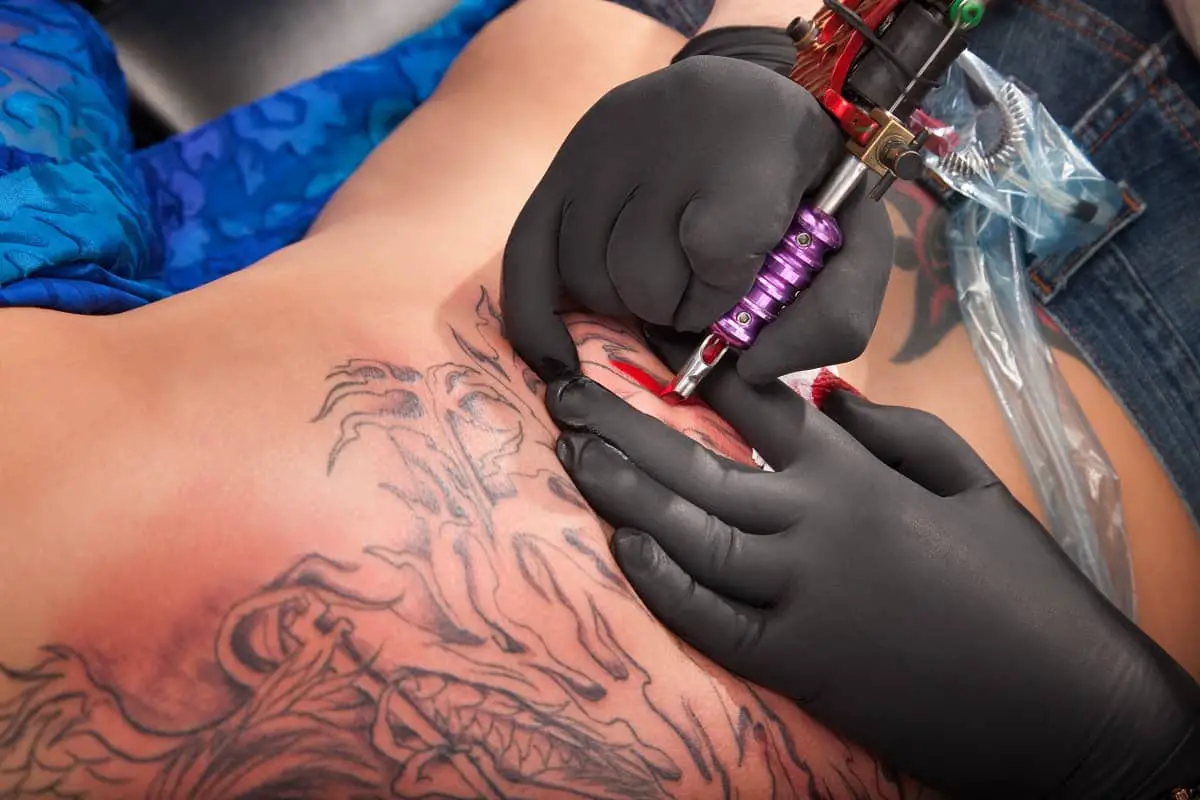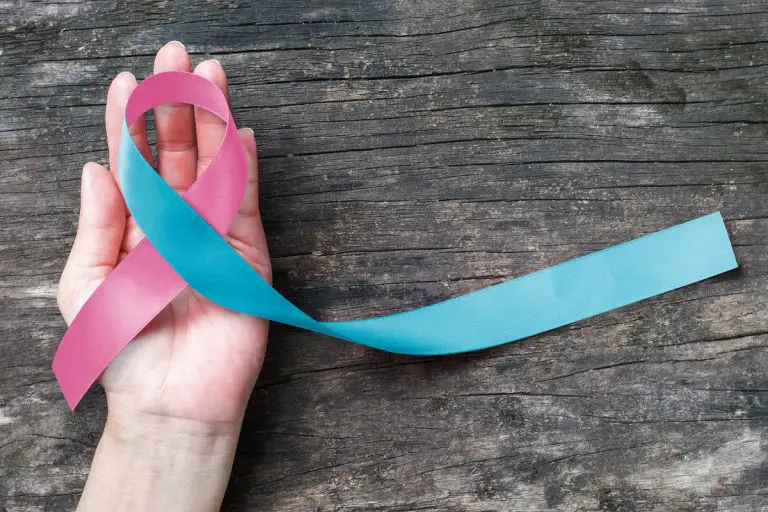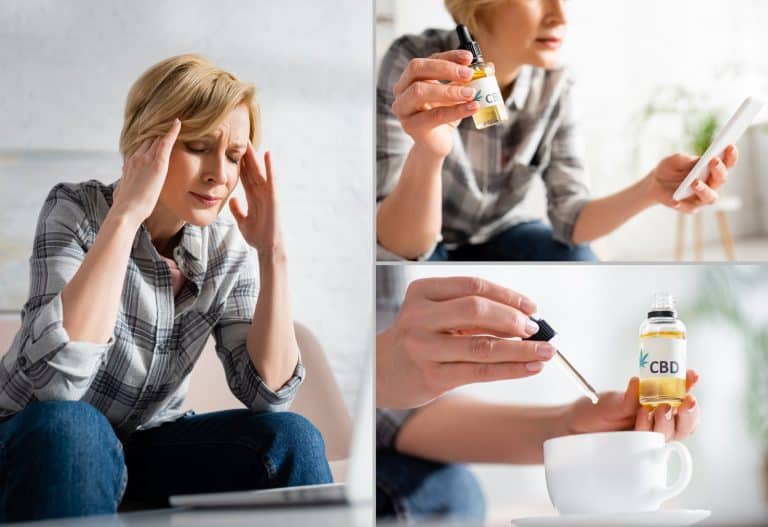Can You Be Allergic To Tattoo Ink: Allergies and Reactions to Tattoo Ink
Even though uncommon for the majority, some people can experience allergic reactions to tattoo ink. Tattoos are considered safe, in general, but for some people, tattoo ink can cause serious trouble.
It is fair to say that tattoo side effects do occur in many tattoo enthusiasts, but allergic reactions to tattoo ink – well, might be a new thing for a lot of people wanting to get a tattoo. So, if you’re about to get a tattoo and checking for any warnings, you’re at the right place,
In the following paragraphs, we’ll learn everything about possible tattoo allergies, how to spot such a reaction and what to do in case you turn out to be allergic to tattoo ink.
Tattoo Ink Allergy – Explained
What Is a Tattoo Ink Allergy?
Tattoo ink allergy, for starters, is a thing. For those wondering about this occurrence, or questioning its legitimacy, you should be aware that anyone who’s getting a tattoo can develop tattoo ink allergy; whether a first-time tattooer or an experienced owner of multiple tattoos.
Now, a tattoo ink allergy is a side effect some people experience upon receiving a new tattoo. The side effect occurs due to the tattoo ink, or to be more specific, due to the ink’s ingredients and the way the body reacts when in contact with those compounds.
The ink triggers an immune response, which manifests in series of skin reactions that can even lead to serious health consequences, depending on the severity of the reactions.
Tattoo ink allergies can also occur when one exposes a fresh, healing tattoo to the sunlight, or UV rays, which could cause serious skin irritation. Moreover, ink allergies can be mistaken for a standard tattoo healing process, or overlooked as well, due to similar symptoms and skin changes.
How Does a Tattoo Ink Allergy Look Like?
Once you get a tattoo, the tattooed area will appear red, swollen and over time even feel incredibly itchy and might start peeling. Now, this is a normal process of tattoo healing, which is generally unproblematic. The redness and swelling generally go away in 24 to 48 hours, while the itchiness and peeling of the tattoed area can last for a few days.
However, in the case of a tattoo ink allergy, similar symptoms occur but in a more persistent, inflamed manner. Here are some of the most common symptoms of a tattoo ink allergy;
- Redness of the tattoo/tattooed area
- Tattoo rashing (the spread of the rash beyond the lines of the tattoo)
- Tattoo swelling (localized, only of the tattoo)
- Oozing blisters or pustules
- General fluid buildup around the tattoo
- Possible chills and fever
- Scaly and flaky skin around the tattoo
Other symptoms, which are considered more severe include intense, almost unbearable itching of the tattoo and the surrounding skin. In severe cases, there is also pus and drainage from the tattoo, hot flashes, fever, and increased body temperature for an extended period.
These symptoms may be similar to the symptoms of a tattoo infection. However, a tattoo infection spreads beyond the lines of the tattoo and is generally accompanied by a fever and chills that last from a few days to a week.
Allergic reactions in the case of tattoo ink can appear immediately or after the tattooing session. The reaction can also occur between 24 and 48 hours after you’ve received a tattoo.
If you experience any of the aforementioned symptoms (and the symptoms are not subsiding or healing, which would generally indicate regular tattoo healing), make sure to seek medical, professional help as soon as possible. Without proper treatment, you’re risking long-term health damage.
What Causes Tattoo Ink Allergy?
As we mentioned, tattoo ink allergies generally occur when the immune response is triggered by the ink ingredients. Tattoo inks are not regulated or standardized, nor are they FDA approved.
That means that the ink ingredients aren’t standardized as well. As a result, inks contain toxic and harmful compounds which cause allergic and skin reaction in people whose immune systems are weaker or impaired.
There is not exact ingredient list for tattoo ink ingredients. But, research shows that tattoo inks can contain anything from heavy metals like lead and chromium, to inorganic chemicals, like food additives.
It is important to mention that not every tattoo ink pigment causes an allergic reaction. A couple of specific tattoo ink colors contain incredibly harmful compounds which cause allergic reactions. For example;
- Red tattoo ink – this pigment contains highly toxic ingredients like Cinnabar, Cadmium red, and Iron oxide. All of these ingredients are on the EPA list of the common causes of allergic reactions, infections, and skin cancer. Red ink most commonly causes severe irritation and hypersensitivity of the skin as a result of ink allergy.
- Yellow/orange tattoo ink – this pigment contains components like Cadmium seleno-sulfate and Disazodiarylide, which can cause an allergic reaction indirectly. The reason for this is that these components make the yellow pigment highly sensitive to UV rays, which makes a tattooed skin itself highly sensitive and prone to reactions.
- Black tattoo ink – even though uncommon, some black tattoo inks can contain high instances of carbon, Iron oxide, and logwood, which can cause allergic reactions in some people. Generally, good-quality black inks are made from powdered jet and carbon soot, which makes them less prone to causing allergic reactions.
Other tattoo inks can contain components like denatured alcohols, rubbing alcohol, ethylene glycol, and formaldehyde. All of these components are highly toxic and can cause serious skin damage, irritations, burns, and in higher concentrations can be even poisonous.
Also Read:
Are There Different Types of Ink Allergic Reactions?
Yes, there are numerous ways your skin and body can react to the allergy triggered by the tattoo ink. Sometimes, the process of tattooing itself can cause a serious skin reaction, which is generally easily treatable. However, other skin and allergic reactions can vary from mild to serious. For example;
- You can develop dermatitis – ink allergy can cause you to develop contact dermatitis. Signs of contact dermatitis include tattooed skin swelling, flaking, and intense itching. This often occurs after you’ve been exposed to red inks, due to the skin-damaging and immune-affecting components.
- You can develop granulomas (red bumps) – ink ingredients like iron oxide, manganese or cobalt chloride (found in red inks) can cause granulomas or red bumps. These generally appear as a form of ink allergic reaction.
- Your skin can become hypersensitive to sunlight – some tattoo inks (like yellow/orange as well as red and blue pigments) can contain ingredients that make the tattoo (therefore, the tattooed skin too), highly sensitive to UV rays or the sunlight. As a result, the allergic reaction manifests in the form of swelling and itchy, red bumps.
How Is Ink Allergic Reaction Treated?
In case of allergic reactions triggered by the tattoo ink, treatment options can vary in regards to the severity of the reaction.
For example, in case of a mild allergic reaction (redness and mild rashing), you can try using over-the-counter medications for relief and inflammation prevention. However, in case of an overall allergic reaction, you can go for over-the-counter antihistamines (like Benadryl, for example), hydrocortisone ointments, and creams to soothe inflammation, irritations, itching, etc.
In case none of the aforementioned medications do not provide relief, and the symptoms continue to worsen, you need to seek immediate medical attention.
If you’re not sure whether you’re dealing with an allergic reaction, tattoo infection/inflammation, or regular tattoo healing symptoms, we advise you to talk to a dermatologist and get properly diagnosed.
To provide the dermatologist with enough useful information regarding your tattooing experience, make sure to check the Safety Data Sheet of the ink manufacturer. Ask your tattoo artist what kind of ink they’ve used for your tattoo to identify the ink manufacturer and the appropriate Data Sheets.
Note: Safety Data Sheet (SDS) is a legally required document every ink manufacturer needs to produce in case they use chemical compounds in their tattoo inks. This means that the Data Sheet contains information about chemical compounds if they’re considered hazardous to one’s health or the environment.
Will An Ink Allergic Reaction Mess Up My Tattoo?
Generally, in mild to moderate cases of an allergic reaction, which involve redness and rashing, you should not experience any issues with your tattoo, when it comes to its appearance.
However, if left untreated, a mild allergic reaction can quickly develop into a serious issue that could potentially mess up the ink and overall tattoo healing.
Now, in serious cases of ink allergic reactions (which include oozing blisters and pustules, fluid buildup, or scaling), the ink can get messed up and the design can be disrupted. Your tattoo may require additional touch-up (once fully healed), or you may have to consider tattoo removal in case of serious design disruption.
How To Avoid Tattoo Ink Allergic Reaction?
Here are some of the steps you can take to avoid tattoo ink allergic reaction next time you decide to get inked;
- Get tattooed by professionals only – professional tattoo artists generally use higher-quality tattoo inks that do not contain as many toxic compounds.
- Consider opting for vegan tattoo inks – vegan tattoo inks do not contain animal products or carbon-based ingredients. They still do contain certain heavy metals and toxic chemicals, which doesn’t make them completely risk-free, but the risk is surely mitigated.
- Get tested for common allergies – before you book a tattoo appointment, make sure to get tested for common allergies with an allergist. A professional may be able to detect any possible allergies or ingredients/compounds that could cause you to have an allergic reaction.
- Avoid getting tattooed when sick – when you’re sick, your immune system is at its most vulnerable, weak state. In such a case, one should avoid getting tattooed, since the body won’t be able to fully and properly fight against potential allergy triggers.
Final Thoughts
Even though allergic reactions and infections aren’t that common, they can still occur in any one of us. However, that shouldn’t be the reason you don’t get tattooed. Simply, take precautionary steps and choose to get tattooed by highly professional, reputable tattoo artists in your area. Make sure to be aware of the tattoo ink ingredients, so always talk to your tattooist about this and feel free to ask them about the ink composition.
- Safe, non-toxic plant-based temporary tattoos made with 100% high-definition printing for a realistic look without the pain
- Easy to apply and remove - just stick for 20 seconds then take off
- Set includes 5 sheets with 17 fun, delicate designs like hearts, cats, smiles, suns, moons, and more
- Waterproof and long-lasting - stays on up to 2 weeks of wear
- Fashionable for women, men, girls and boys
- Place on arm, wrist, neck, leg, finger, waist, foot and more
- Great for parties, birthdays, and showing your unique style








